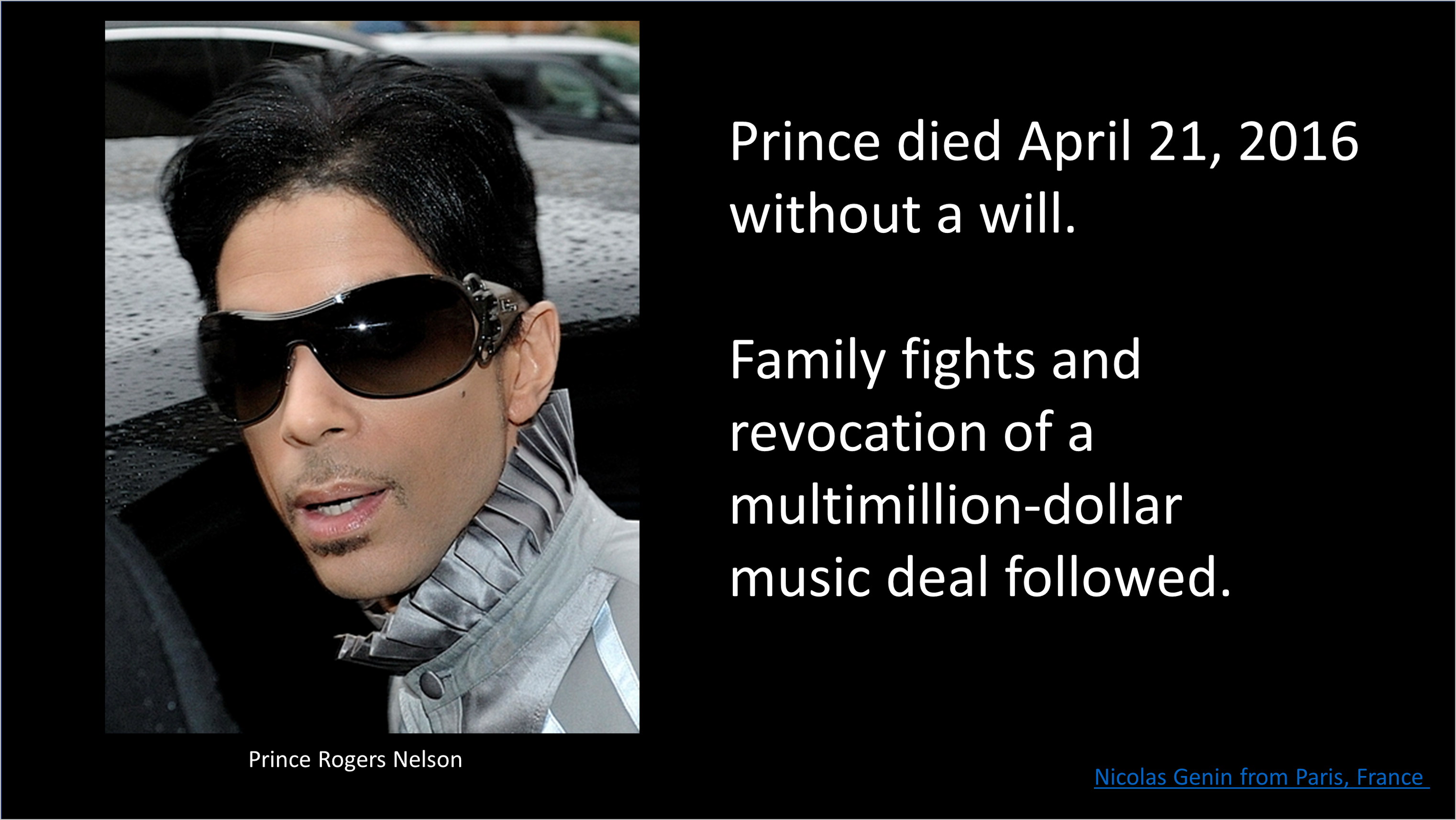Another Member Of Music Royalty Dies With No Will
Published Friday, August 24, 2018 at: 7:00 AM EDT
Legendary singer, Aretha Franklin succumbed to pancreatic cancer at the age of 76 on August 16, 2018, and she was accorded funeral rites usually reserved for heads of state. But the diva who famously demanded respect, sadly, died without a will.
Her estate is subject to probate, and a long-drawn out public legal proceeding to hear claims by her four children and other relatives — an undignified end for music royalty.
While Ms. Franklin was a genius by most measures and her music legacy lives on, she appears to have had a blind spot when it came to money and, perhaps, mortality. A minister's daughter, the Queen of Soul, was known to demand payment in cash before performing live and keep the cash near her onstage.
Probate proceedings have often resulted in public family fights and big legal fees, and music rights owned by an artist heighten the stakes and greed. The case of Prince, who died in 2016 without a will, has reportedly led to family disputes and revocation of a multimillion-dollar music deal.
Instead of leaving a legacy defined on her own terms, Ms. Franklin's family is subject to a public probate proceeding, which can turn ugly.
If you do not have a will or know you have a blind spot around dealing with money and planning properly, please call and let us try to help you.
This article was written by a veteran financial journalist. While the sources are believed to be reliable, the information is not intended to be used as financial advice without consulting a professional about your personal situation.
This article was written by a professional financial journalist for Preferred NY Financial Group,LLC and is not intended as legal or investment advice.
An individual retirement account (IRA) allows individuals to direct pretax incom, up to specific annual limits, toward retirements that can grow tax-deferred (no capital gains or dividend income is taxed). Individual taxpayers are allowed to contribute 100% of compensation up to a specified maximum dollar amount to their Tranditional IRA. Contributions to the Tranditional IRA may be tax-deductible depending on the taxpayer's income, tax-filling status and other factors. Taxed must be paid upon withdrawal of any deducted contributions plus earnings and on the earnings from your non-deducted contributions. Prior to age 59%, distributions may be taken for certain reasons without incurring a 10 percent penalty on earnings. None of the information in this document should be considered tax or legal advice. Please consult with your legal or tax advisor for more information concerning your individual situation.
Contributions to a Roth IRA are not tax deductible and these is no mandatory distribution age. All earnings and principal are tax free if rules and regulations are followed. Eligibility for a Roth account depends on income. Principal contributions can be withdrawn any time without penalty (subject to some minimal conditions).
© 2024 Advisor Products Inc. All Rights Reserved.




